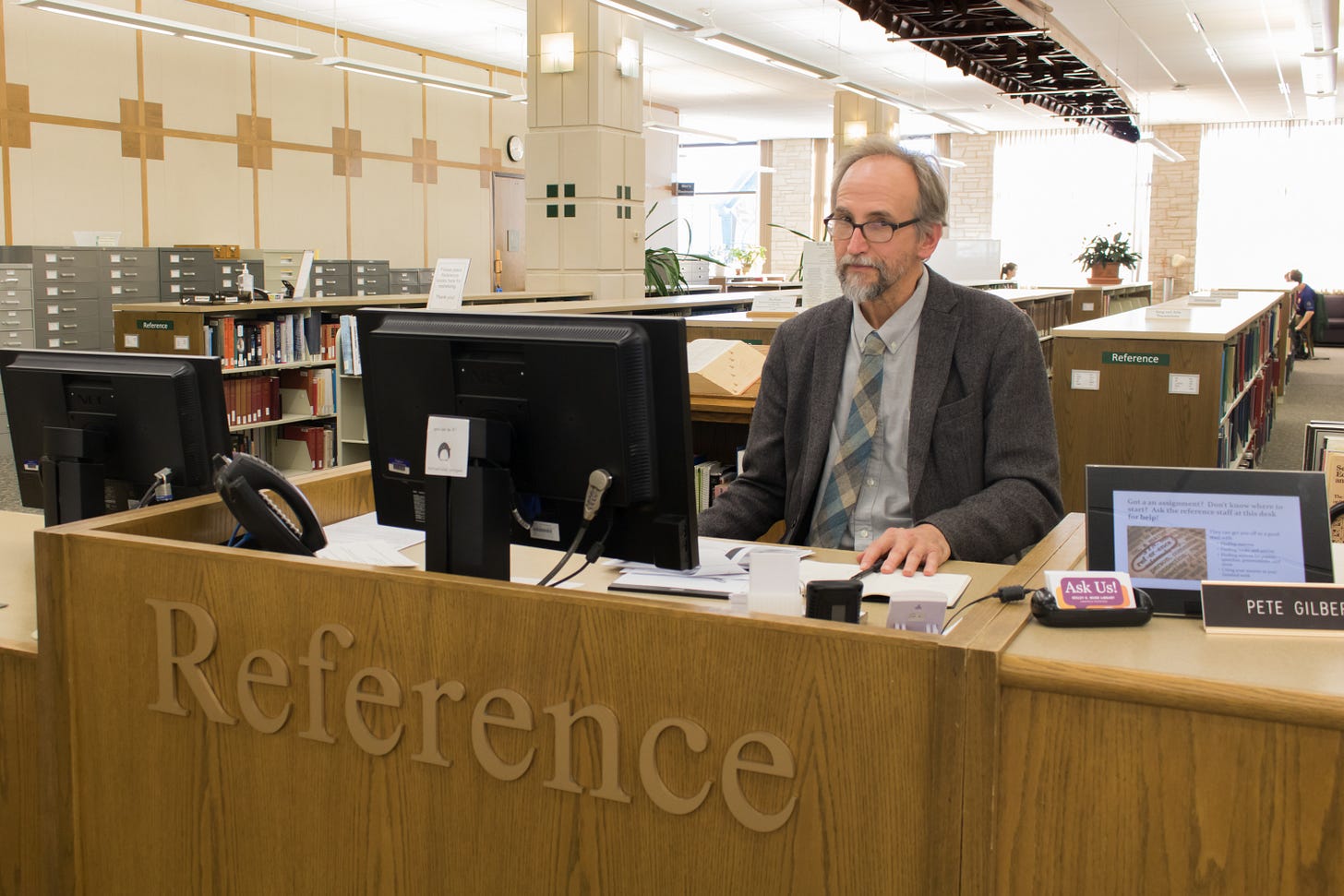Please, Thank You, Homework
How to Get An Expert to Help You With Your Research (Without Pissing Them Off)
This is the fifteenth installment in the series Get Your Facts Straight: Research Skills for Writers. For more about this 18-part series, including the complete schedule and the Table of Contents with links to all the other articles in the series, click here.
Researchers often end up in the weeds. At least we should. The whole point of research is finding new information you didn’t have before, acquiring new understandings about the world and the people and things that are in it, and, generally speaking, adding to one’s storehouse of information and insight so that we can share it usefully with other people. Ending up in over your head is part of the process of doing this learning.

But it’s also part of the learning curve to sort it out so you can get yourself back on track. This is where you may want an expert guide.
The first step to finding one is figuring out what kind of guide you need. There are two, and you’ll need one, the other, or both. Then, you have to ask them for help. There are better and worse ways to do that.
Before we get to those, though, we should sort out the expert guide situation. As I mentioned, there are two basic types. The first kind is the research guru. The second is the subject expert. They’re different, they serve different functions, and they should be approached for help in different ways.
Research Gurus
Do you need help figuring out something having to do with research itself, such as finding out where to look something up, or what kind of reference sources are likely to have the kind of information you’re looking for, or whether there’s an archival collection about the person or organization you want to know more about? Are you looking for someone who can help you find out what the ten most frequently cited books are on a particular subject, where you can locate footage from old TV shows, or which government records office is likely to have the maps that show where your great-grandfather’s farm’s property lines were?
Then a research guru is exactly what you need: a reference or research librarian, possibly an archivist or a fact-checker.
Research gurus are the appropriate people to whom to take questions about information and where and how to find it. If you’re new to a topic and want guidance, new to research and need to know where to start or how to get familiar with the resources in a particular subject area, these are the people to ask.
They will not necessarily be able to answer your specific question or provide you with a particular morsel of information — and this also may not be part of their job, since not all research professionals’ jobs include that kind of specific fact-finding for clients — but they can definitely help you figure out where you can find what you need and how to do so.
Where to find them:
libraries, archives, and other information distribution services like records offices.
How to approach them:
Be able to give a general description of the information you are trying to find. The more details you can give, the better. Saying “I want to learn about building bridges” is less helpful for the person trying to assist you than saying “I want to know how people build the big pilings that go down to the bottom of rivers. How do they do the underwater construction?” These details give your research guru more to go on, and makes it more likely that they can help you get the answers you’re looking for.
Be able to give a basic overview of what you’ve already tried, including any specific resources you’ve already used. Research gurus will often ask you about this. Perhaps you’ve already done a couple of web searches and read the Wikipedia page about your topic, or you saw a documentary about it, and you spent some time on YouTube watching videos made by people who were doing the activity you’re curious about. This is helpful. Describing the information you’ve already encountered gives the research guru some idea of what you already know and what might be most helpful as a next step.
Be willing to try what they suggest, even if you’re not sure it’s going to give you exactly the information you’re looking for yet. The key word is yet, and that’s why you have to give their suggestions a shot: they can’t know every single source and what it contains, but neither do you. They, on the other hand, have a much better idea about what sources are likely to contain particular kinds of information than you do. Take advantage of the fact that they can narrow things down for you. Be willing to do your part and check out their recommendations before you decide they aren’t what you need.
If you go back for additional help, share what you found and the ways in which what you learned that wasn’t quite what you needed. This helps both you and your research guru narrow things down further and select more focused reference possibilities.
And of course, say please and thank you. Acknowledge that this person is helpful precisely because they know things that you don’t, and that you’ve asking them to help you and they’ve very kindly given you that help. Remember that it’s not their job to do your homework for you, just to make it possible for you to do your own… and thank them for their assistance.
For your own sake, always make a note of who you talk with and on what dates. It helps you remember who was helpful, who wasn’t, and gives you a way to refer to previous interactions if you need more help in the future. It’s also nice to be able to credit them publicly when you can, for instance in book acknowledgements.
Subject Experts
Are you looking for detailed technical information about something? Need a very specific answer to a very specific question? Trying to find out how to understand something fairly specialized in a field where you don’t have advanced expertise or training? Searching for an expert read on something — a theory, a current event, the work of another expert or writer or scientist — rooted in deeper and better knowledge than you personally have? Then you’re looking for a subject expert.
Subject experts are not the people to whom you should take your basic research questions. They are also not people you should be asking to fill in the background of a subject for you — not because they can’t, but because that’s not a great use of their time or yours. You should be able to get background information elsewhere, and even a few layers of more sophisticated intel through other channels. Do that first. Only then should you reassess whether you still need a subject expert. I recommend calling upon subject experts only for help with information and understanding that you actually can’t get somewhere else.
Keep reading with a 7-day free trial
Subscribe to Reasons Not to Quit to keep reading this post and get 7 days of free access to the full post archives.





